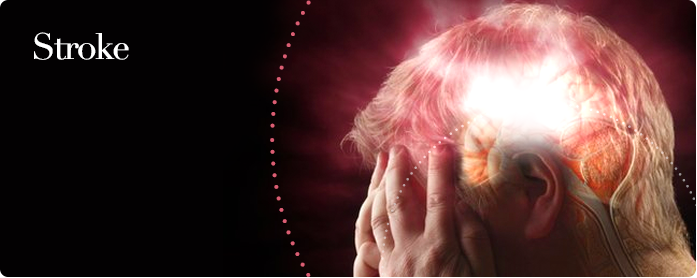
Make an appointment

Stroke
| Stroke, or “brain attack” occurs when brain cells are damaged by an interruption to blood flow. This can be caused by a blood clot or bleeding. |
|
| The most important risk factors for stroke are |
|
- Hypertension
- Diabetes
- High cholesterol
- Atrial fibrillation
|
|
| Because brain cells are highly dependent on oxygen to function, lack of oxygen causes irreversible damage to brain cells within minutes. This results in loss of function which may affect speech, movement, sensation and consciousness. |
|
Prevention of stroke by treating risk factors is therefore the most important step in the fight against stroke.
When a stroke does occur, an emergency CT scan or MRI test can differentiate between a clot and a bleed. If it is a clot, clot-dissolving medication can be given to limit the damage caused by the stroke, but it must be given as early as possible. If it is a bleed, the patient must be observed closely for growth in the size of the bleed and compression of surrounding brain tissue. Compression of the brain stem area can lead to cessation of breathing and circulation and death. In some cases, emergency brain surgery to relieve the pressure may be necessary to save the patient’s life. When bleeding is due to rupture of a congenital brain aneurysm, surgery to clip the aneurysm and stop the bleeding may be required. |
|
| If the patient survives the stroke, a long process of recovery and rehabilitation is required. Full recovery of all functions is often not possible unless the stroke is detected and treated very early. |
|
| After a stroke, patients are at risk for another stroke. Prevention of stroke requires treatment of risk factors and use of blood thinners such as aspirin, clopidogrel, warfarin or newer blood thinners such as dabigatran, rivaroxaban and apixaban. |
|
| Heart evaluation is important to detect risk factors such as atrial fibrillation, heart valve disease and heart failure. Tests that may be ordered include ECG, Holter monitor and echocardiogram. |
|





